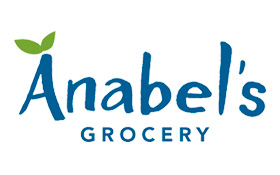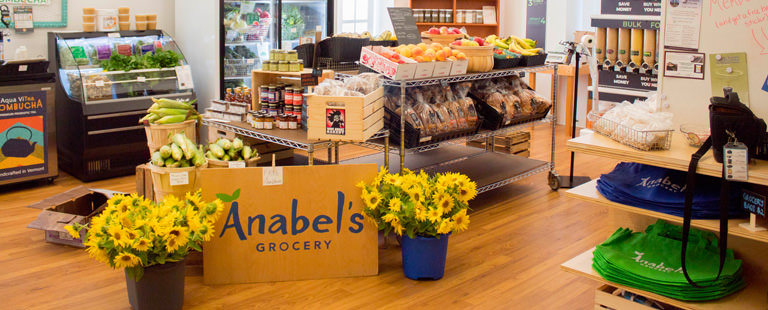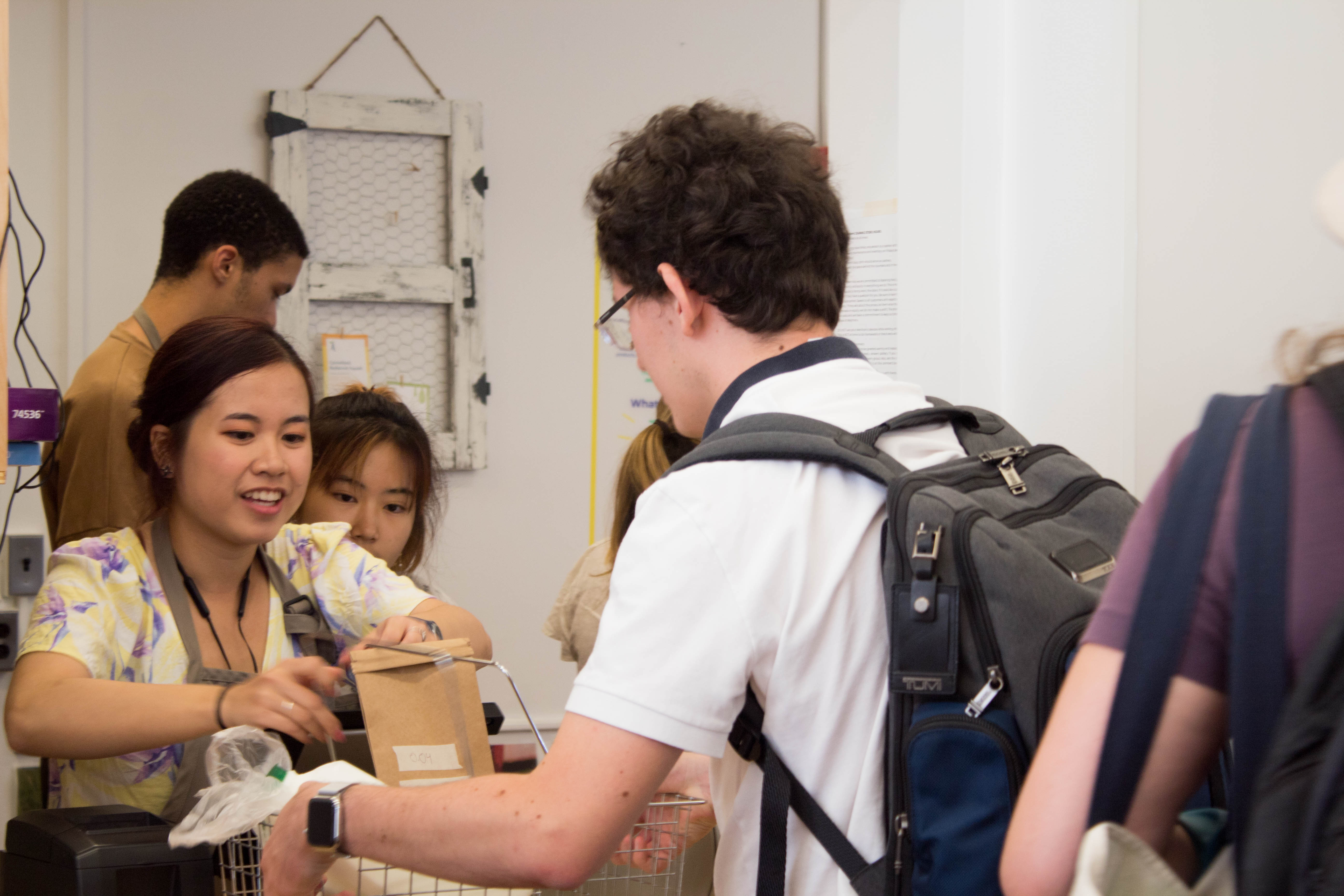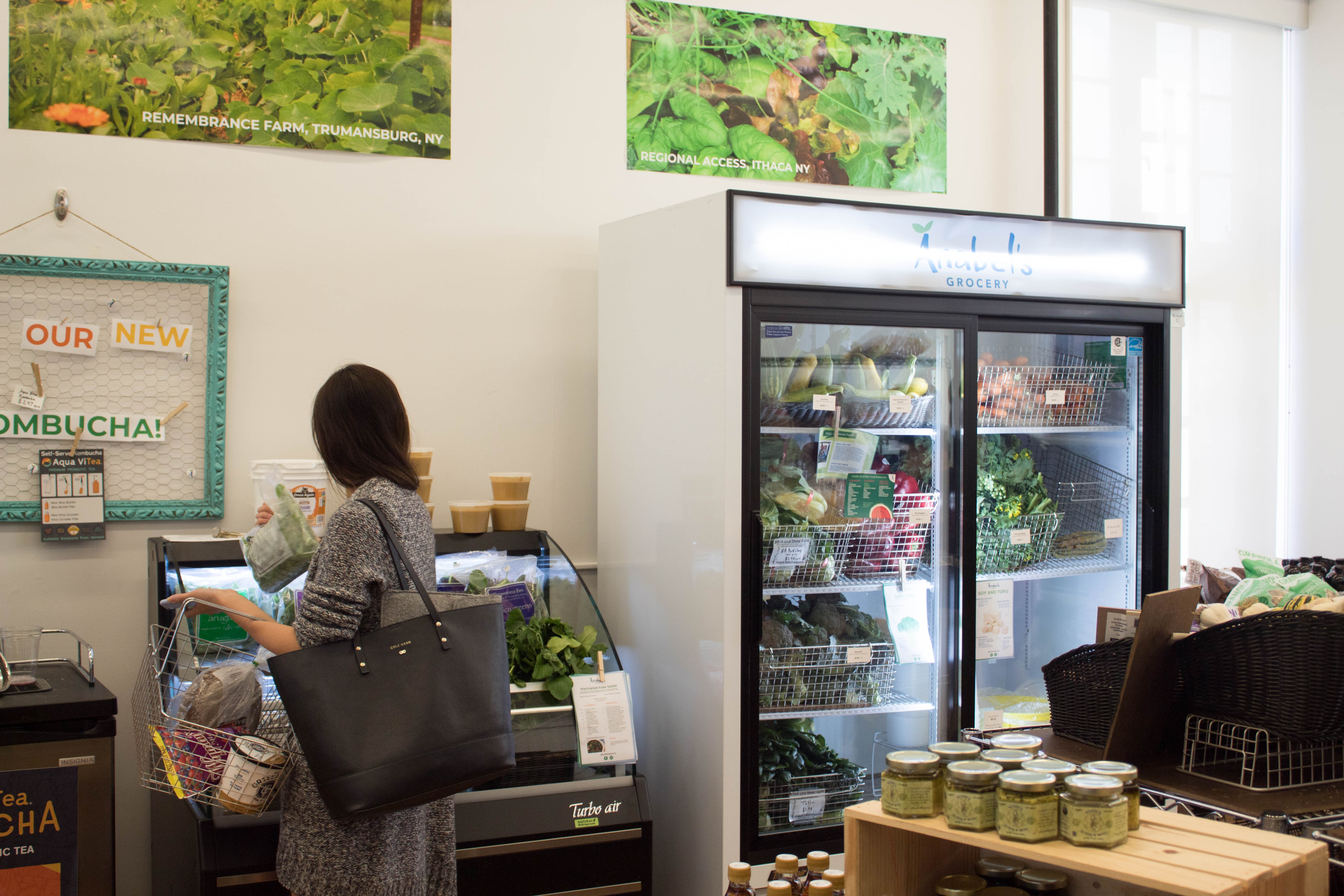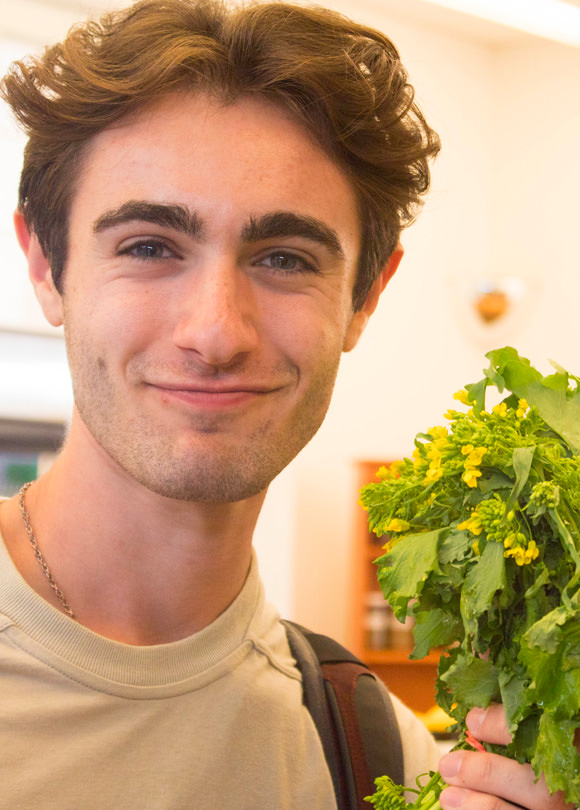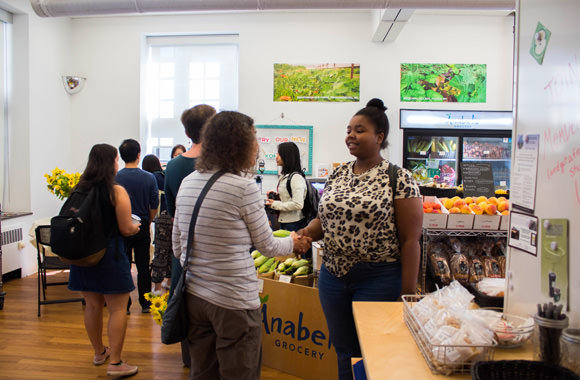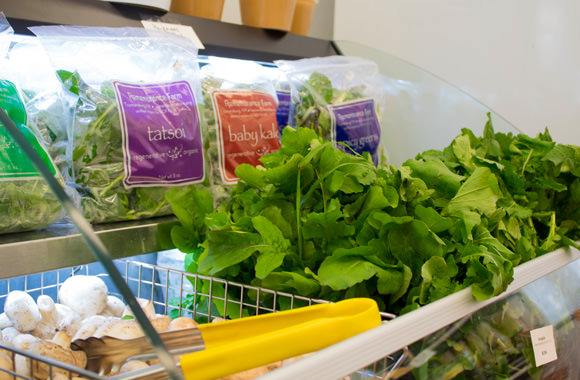Healthy, affordable groceries, with an emphasis on essentials, ingredients, and fresh produce for students.
After 4 years of visioning and planning, Anabel’s Grocery opened their student-run, non-profit grocery store in Cornell’s Anabel Taylor Hall in May 2017. It showcases the unique ways in which CTA’s affiliation with, yet legal independence from, Cornell University can be leveraged to support social justice efforts arising from the university community.
Alexandra Donovan, a member of Anabel’s founding leadership group, remarked that, “At a school with a high tuition/high aid model, it is especially difficult for low income students to bridge the financial gap of additional expenses like textbooks, supplies, rent, and food. Food is one of those things that students have the most control over, and is therefore one of the first budget cuts they make.”
With the motto of ‘Students Helping Students, ‘ Anabel’s saves all student shoppers an average of 20% on their grocery bill and provides highly nutritious and fresh ingredients by focusing on vegetables, fruits, whole grains, legumes, nuts, spices and herbs. In addition, Anabel’s offers recipes, cooking classes, and other educational materials to help students still learning how to cook nutritious, yet inexpensive meals. Thanks to CTA’s designation with the USDA, Anabel’s is also the only venue on Cornell’s campus accepting SNAP EBT.
We didn't start off saying "let's open a store."
“We didn’t start off saying ‘let’s open a store,’” explains Kerry Mullins, another student leader from Anabel’s early years. “A group of students recognized that their peers were experiencing food insecurity on campus. We went through and considered a lot of solutions, and we finally landed on opening a student-run grocery store.”
Yet Anabel’s is not just a grocery store. In addition to providing affordable, high quality food, recipes and cooking classes, Anabel’s collaborates with other student organizations to address the systemic forces that give rise to food insecurity at Cornell and in society. In 2021, Anabel’s launched an Anti-racism Action Fund, supported through the sale of products donated by the student-run Dilmun Hill Farm and the Cornell Hydroponics Club. This fund supports anti-racist actions on campus and is distributed by Cornell4BlackLives.
Anabel’s Grocery also provides a unique opportunity for the team to earn academic credit through a course taught by CTA’s executive director, Anke Wessels, in Cornell’s Dyson School of Applied Economics and Management. Students apply principles of social entrepreneurship to examine how forces of racism and capitalism produce inequities in the food system and discuss how alternative food initiatives, such as this nonprofit grocery store, can become public spaces for food justice and anti-racist action. All of this is made real as they run every aspect of the grocery and its educational and outreach programs.
